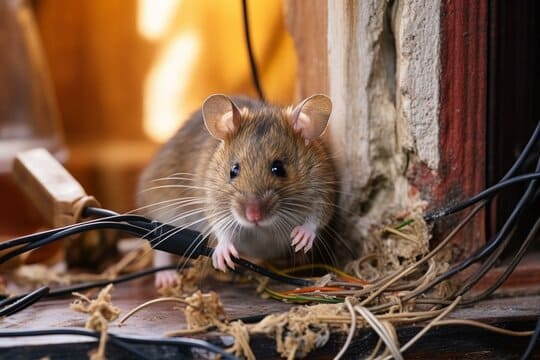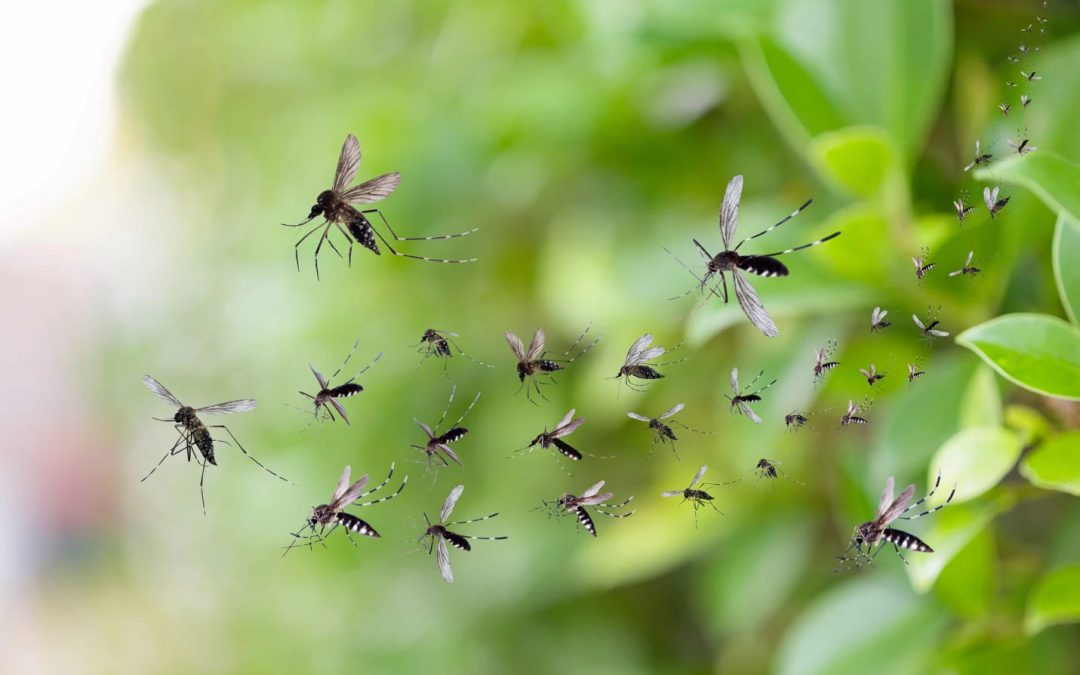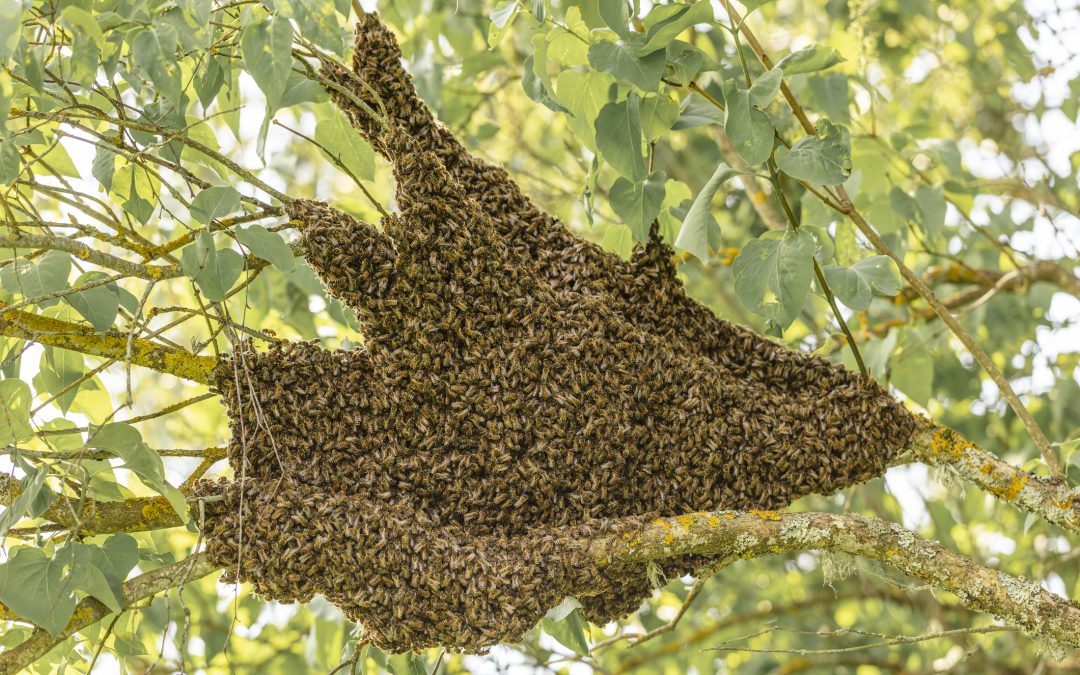
Early signs of autumn pests
EARLY SIGNS OF AUTUMN PESTS
As the summer festivities wind up and days get cooler, you might naturally assume that pests will also disappear. Unfortunately, this is not the case for ants, cockroaches, spiders and rodents. Learn how you can identify these common autumn pest issues fast in today’s Hivemind blog.
What questions will this article answer?
Why do hospitality venues attract pests in autumn?
As the weather cools down in autumn, pests seek out warmth and shelter to survive the harsh winter conditions.
Rodents
Rodents are noisy, hungry and unhygienic, and leave a huge mess behind.
Cockroaches
Cockroaches spread diseases and chew through food packaging with their sharp teeth.
Ants
Ants contaminate surfaces and their bites can sting and trigger allergies.
Integrated pest management for hospitality venues
A personalised pest management program for your venue can be accessed easily by logging into our 24/7 online portal.
Choose Allstate for tailored and effective hospitality pest management
We’re available 24/7 for urgent advice and modern, innovative and safe pest control management to all suburbs of Adelaide.
Ants
When the mercury starts to dip in autumn, this signals ants to seek out warmer places to house their colonies in winter. As expert scavengers, ants can also detect food smells from over 3 metres away. With these important resources being readily available in your home, it’s not hard to imagine why ants would want to venture inside!
How to identify ant infestation
- You’re noticing more ants out and about, especially marching along well-defined ant trails to and from their nest and food source
- You find ant hills in your garden, which look like small areas of raised dirt, with a central opening
- Fire ants can create distinctive mounds which are up to 40cm high, depending on the type of soil
- Carpenter ants leave behind piles of frass, resembling fine dirt particles, made up of wood shavings, dirt, droppings and ant body parts
Tips to keep ants away
- Keep food covered in tightly sealed containers and stored away
- Regularly clean and disinfect food preparation and dining areas including tables, benches, sinks, stoves and floors.
- Don’t forget outdoor dining areas as well
- Wipe away food spills and crumbs immediately
- Avoid leaving dirty dishes and cutlery in the sink
- Keep rubbish stored in bins with well-fitted lids
- Regularly mow your lawn
- Trim back trees and shrubs away from your home
- Dispose fallen fruit in your backyard, as well as piles of vegetation
- Use ant baits
Cockroaches
Well known for spreading diseases, cold-blooded cockroaches cannot regulate their bodies in cooler temperatures, and rely on the warmth, shelter and food in your home to survive. With the cockroach population peaking in summer, you’ll see them increasingly seeking refuge in your home as the mercury drops.
How to tell if you have a cockroach issue
- As nocturnal creatures, you’re more likely to see them when they’re active at night
- As they grow bigger, cockroaches leave behind moulted outer skins which are thin and pale-yellow in colour
- Cockroach droppings can vary in length depending on the species, but resemble coffee grounds and can give off a musty odour
Safeguarding your home from a cockroach issues
- Inspect your home for potential entry points and either cover or fill them
- Check the plumbing around your home for leaking pipes and drains and repair them as cockroaches thrive in moist environments
- Remove food sources by keeping your kitchen and dining areas clean, wipe away food spills and grease around your stove and oven, keep your dishwasher clean, and ensuring that food and rubbish is covered tightly
- Practice good hygiene by washing your hands with soap and water before and after food preparation, handling waste and coming into contact with contaminated surfaces
Worried about summer pests causing an autumn issues? Speak to an expert today
 or
or
Spiders
Although spiders are very busy over summer, they’re still extremely active in autumn. They’ll be seeking out a warm place to hibernate when it gets cold, while simultaneously looking for mates and laying eggs ready to hatch come spring.
Signs of a spider issues
- You may notice more spiders out and about, especially at night, as most are nocturnal
- You keep bumping into messy and sticky cobwebs
- Egg sacs which contain hundreds of eggs are encased in silken webbing may be seen suspended in nesting areas
- Wolf spiders use their fangs to tunnel through dirt and create burrows in your yard, where they lay waiting for prey.
- These burrows have a rounded opening which can be 2-3cm in diameter
Preventing spiders in your home
- Regularly sweep, dust and vacuum to remove cobwebs in your home, paying attention to windows, window screens, walls and ceilings in less frequented areas
- Reduce clutter
- Seal off potential entry points and hiding spots, such as gaps, cracks and crevices
- Regular garden and yard maintenance, including trimming back tree branches and removing piles of wood and leaf litter
Rodents
With the rodent population peaking in late summer and early autumn, and food sources dwindling as autumn progresses, rodents become increasingly active in their search for alternative resources and shelter. Unfortunately, this could lead them straight inside your home!
Spot a rodent infestation
- While they can be hard to spot, you’re more likely to physically see them scurrying about at night as they are nocturnal
- Listen for squeaking, scratching, scurrying and scampering sounds coming from your roof and walls
- Rodent droppings usually look like black grains of rice, and range from 3-18mm in length, and give off an unpleasant, musty odour
- Unexplained gnawed and partially eaten food items left scattered around your home
- Gnaw marks appearing on your walls, timber furniture, cables and walls
- Rodent nests are typically well hidden, but are constructed from foraged material scraps such as wood, straw, paper, fabric and cardboard
- Grease marks may appear on your walls and skirtings from rodent fur
How to stop a rodent problem
- Inspect your home, especially your roof, for possible entry points and seal them over
- Avoid leaving food items out in the open. Instead, keep them stored away in sturdy containers or packaging
- Keep rubbish bins and compost properly covered
- Cover vents with a fine mesh and install grates or caps on chimneys
- Fit weather strips around windows and draught excluders under doors
- Regular yard maintenance including keeping shrubs and trees trimmed, lawns mowed, disposing fallen fruit and piles of organic waste
For safe and effective autumn pest management, choose Allstate
That’s why our team is available 24/7 for urgent advice to infestations of all sizes in residential, commercial and industrial settings in all suburbs of Adelaide.
Locally operated since 1986, our highly trained, licensed pest control technicians provide tailored and innovative solutions to manage pest problems using non-toxic treatments which are safe for children, pets and the environment.
With various payment plans offered on all our services, your home can stay pest-free not just this autumn, but all year round.








